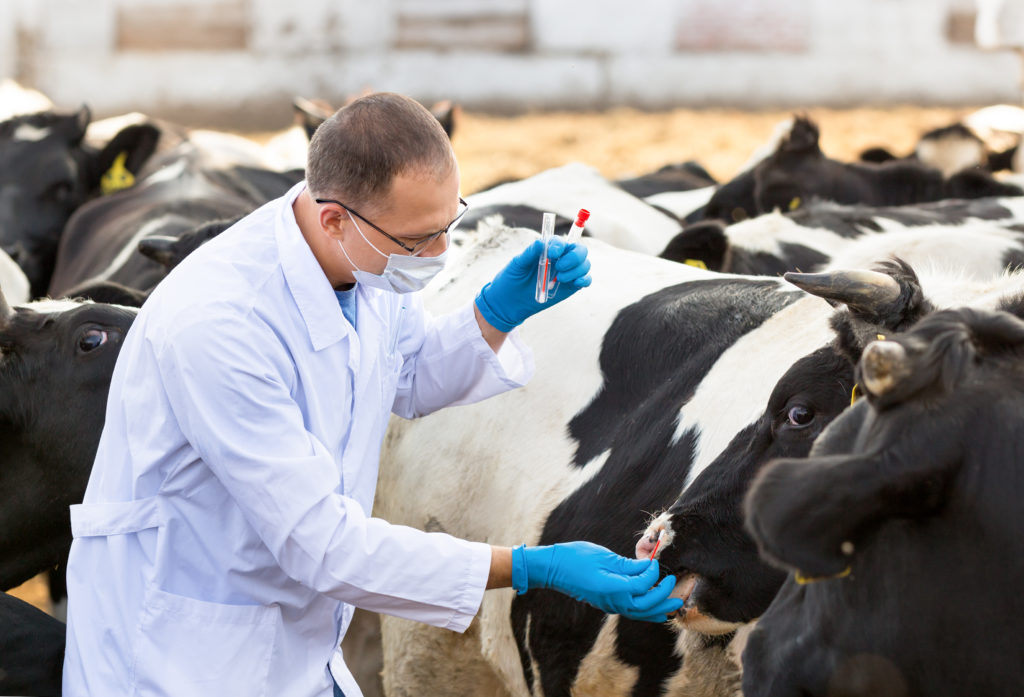Agricultural Animal Diseases

The UK has a long history of intensive production and farming.
In fact, farming is the UK’s largest manufacturing sector, which contributes almost £122 billion to the country’s economy while providing 61% of the food eaten in the UK1.
With farming being such big business it is not surprising that farmers along with the government have to step in and help to prevent potentially contaminative issues relating to farming activities as well as animal diseases which could have a major impact on agricultural production and market access. As a good example, I remember like it was yesterday when I first read about the famous disease outbreak that affected the country in the 80s. Mad Cow disease, as it became popularly known, started in the late 1980s in the UK. It affects the central nervous system in cows, with symptoms of aggression and a lack of coordination. The disease is contagious to humans through eating contaminated meat and it could affect the human brain. It was the first and only time in my life that I saw meat banned from supermarkets including the exportation to other European countries. Since 1995, when it was identified, 178 deaths have been attributed to it and one in 2,000 people in the UK is a carrier of the disease2.

However, this is not the only case of a widespread outbreak of an agricultural disease that has happened in the country. The biggest example of an animal disease was fifteen years ago when foot-and-mouth disease led to millions of animals being killed and the UK losing billions of pounds. It took nine months to bring foot-and-mouth under control, costing the UK’s public sector £3bn and the private sector £5bn3.
For those who are not familiar with the topic, the animal diseases which are highly contagious are classified as “Notifiable Diseases” by the Animal and Plant Health Agency (APHA) and you are legally obliged to report them even if you only suspect that one animal may be affected. The failure to do so is an offence4.
A few examples of Notifiable diseases are: Foot and Mouth Disease, Anthrax, Scrapie, Avianza influence (bird flu) among others which can be found here: https://www.gov.uk/government/collections/notifiable-diseases-in-animals.
Once a potential notifiable disease is reported these are the procedural steps that are followed next4:
- Report the notifiable disease to Defra Rural Services;
- APHA will investigate the case visiting the premises and carry out an investigation;
- If there is still a suspicion, they will take samples for testing;
- In the meantime, they will put restriction within the facility until the investigation is complete.
However, if the disease has been confirmed:
- Action will be taken to reduce the risk of the disease spreading;
- The government will be involved investigating where the disease came from and whether it has spread;
- The government will put restrictions on the premises where the disease is likely to have spread. Further restrictions will be introduced depending on the risk of the disease and the APHA will communicate what action you should take4.
It is important to remember that everyone has a role to play. A good agricultural practice is fundamental in order to prevent these situations and farmers should keep animals healthy and treat diseases working closely with vets and professionals. Support for sustainable farming activities is also essential. I personally think that the identification and spread of animal diseases will depend on the type of farming. If we promote a more sustainable agriculture, we will contribute to a better practice, increasing the quality of our food and ensuring a healthy and productive market in the future.
Whilst it is important to be aware of agricultural diseases, it is also essential to acknowledge the potential contaminative risks associated with farming activities. Groundsure’s Agricultural report provides information regarding historical and current potential contaminative risk, which can give you an indication of whether there is something to consider as part of your property transaction.
More information about which data is covered within our Agricultural report can be found by visiting https://www.groundsure.com/products/agricultural-search/.
References
1. https://www.countrysideonline.co.uk/food-and-farming/contributing-to-the-economy/
2. https://www.bbc.co.uk/news/uk-45906585
3. https://www.bbc.co.uk/news/magazine-35581830
4. https://www.gov.uk/government/collections/notifiable-diseases-in-animals
Date:
Nov 11, 2019
Author:
Cristina Ortega

